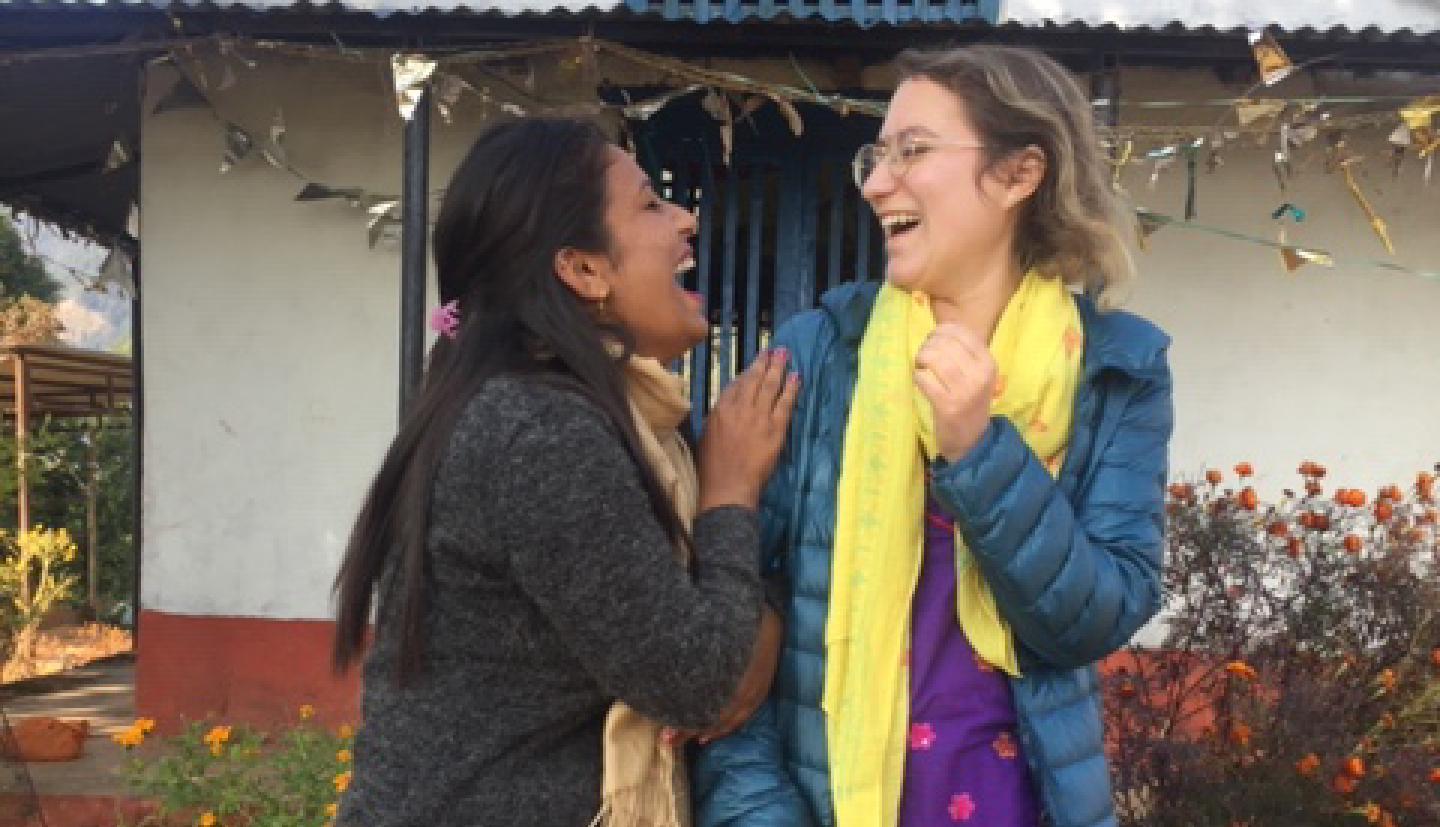Leala Rosen MPS ’20 explores intersectionality issues faced by community groups in the forests of Nepal
As a Master of Professional Studies (MPS) student in Global Development, Leala Rosen ’20 focused on international agriculture and rural development, gender, and community-based natural resource management. The Returned Peace Corps Volunteer has extensive experience engaging Nepal’s community forest initiatives with a gender equity and social inclusion lens.
What did you study during the MPS program and where did it take you?
As part of the MPS program, I returned to my Peace Corps village in Western Nepal to study the intersectionality of gender equity and social inclusion among community forest user groups. I have deep ties to the community where I conducted this research and enlisted the support of local leaders and a research assistant to organize and facilitate focus group discussions, as well as observe the ways in which community forest utilization occurs, such as livestock foraging, collecting non-timber forestry products, collecting firewood, and more. While gender equity and social inclusion are sometimes seen as one component in terms of diversity and inclusion, it is important to recognize these as separate — but often intersectional — distinctions. It is far easier to count the number of women who attend a training than it is to analyze social differences. Gender equity and social inclusion are essential features to fostering a more just global community.
In the case of Nepal, this includes low-caste groups, socially disadvantaged groups, women, and other traditionally marginalized populations. Gender equality is pertinent to more inclusive conservation work, but the recognition of gender equity and social inclusion as two different and often intersecting components is essential to truly inclusive work within the conservation sector. This research, which was funded by AWARE and Office of Engagement Initiatives grants, allowed me to hone the technical and content-focused skills gained at Cornell in an applied research project.

What work are you currently engaged in?
At Cornell, my research and coursework focused on the nexus of environmental conservation, gender equity, and capacity building, which led me to my current role at the Wildlife Conservation Society. I currently work as a program officer at the Wildlife Conservation Society on an external partnership program, the Conservation Leadership Programme, which builds leadership and program management capacity of early-career conservationists through trainings, small grants to work on the conservation of at-risk species, and other professional development opportunities. Capacity building and leadership development of early-career conservationists can have huge conservation impacts for threatened species and protected areas around the world. The conservationists' work is incredibly inspiring, and I learn from them on a daily basis.

What advice do you have for students seeking to work in the development sector?
I would encourage Global Development students to take classes that challenge them to think critically, and encompass a mixture of content-specific courses and technical skills. Personally, I would recommend Participatory Farmer Research & Extension, Tropical Cropping Systems, and Environmental Planning & Management. Global Development is a broad field for a reason — the possibilities are limitless.
About the author
Leala Rosen
Leala Rosen MPS ’20 is a Program Officer at the Wildlife Conservation Society’s Conservation Leadership Programme. After serving in the Peace Corps in Nepal, Leala received her Master of Professional Studies in Global Development where she studied the intersection of community-based natural resource management, sustainable food systems, and environmental conservation.

Keep Exploring

News
- Cornell University Agricultural Experiment Station
- Agriculture
- Food

News
- Department of Global Development
- Global Development

We openly share valuable knowledge.
Sign up for more insights, discoveries and solutions.


